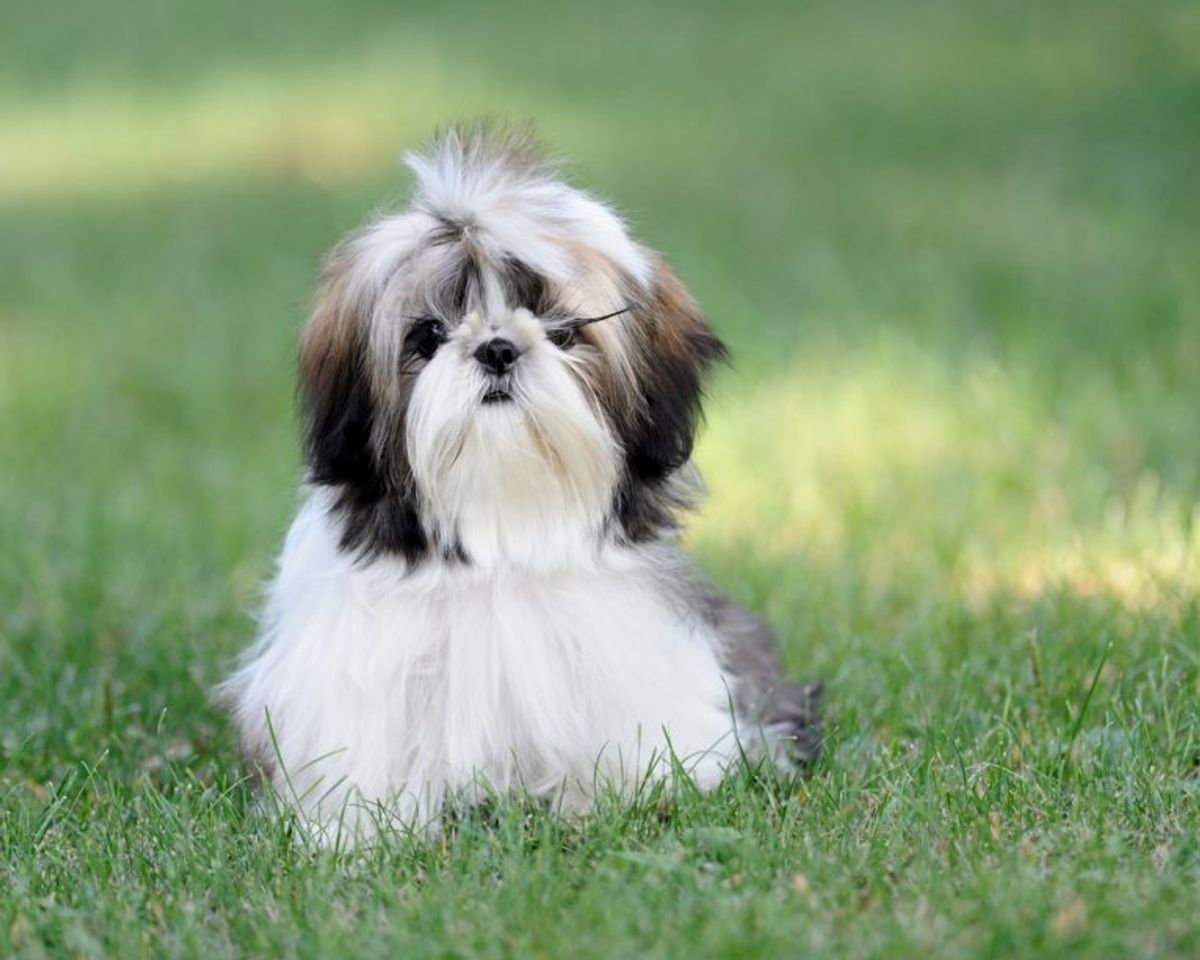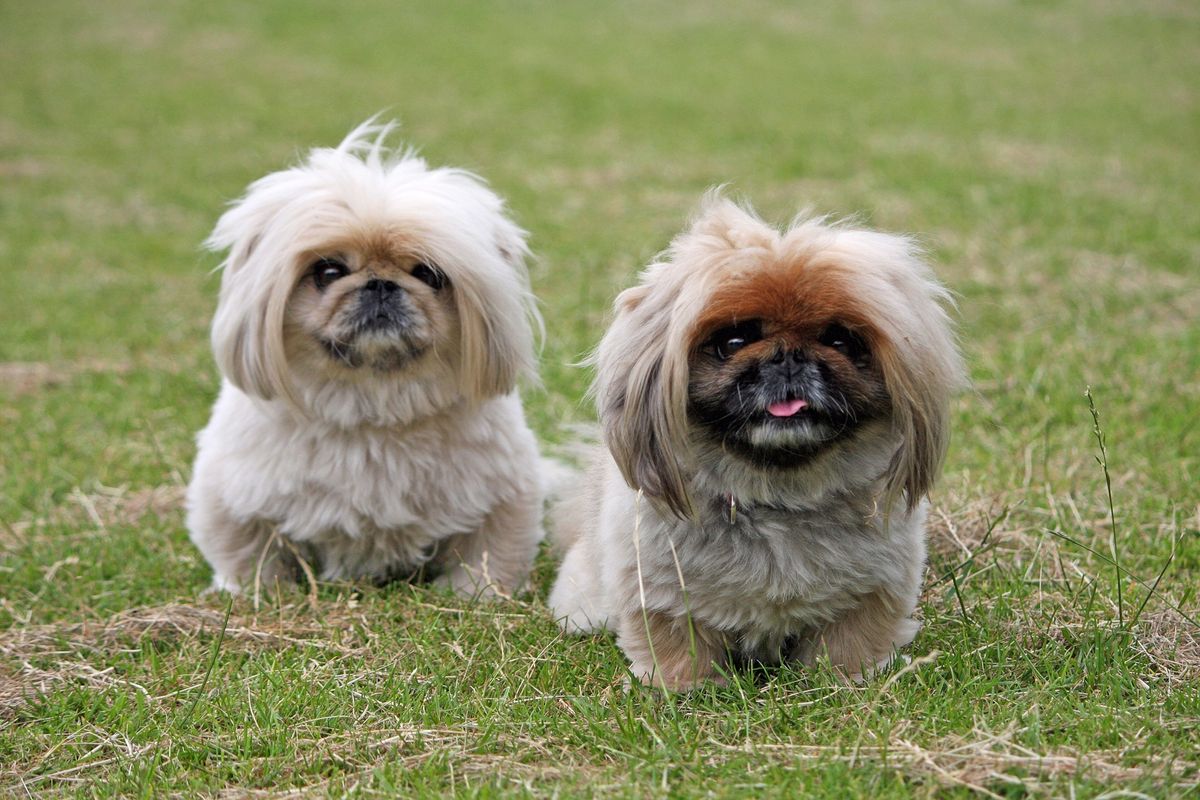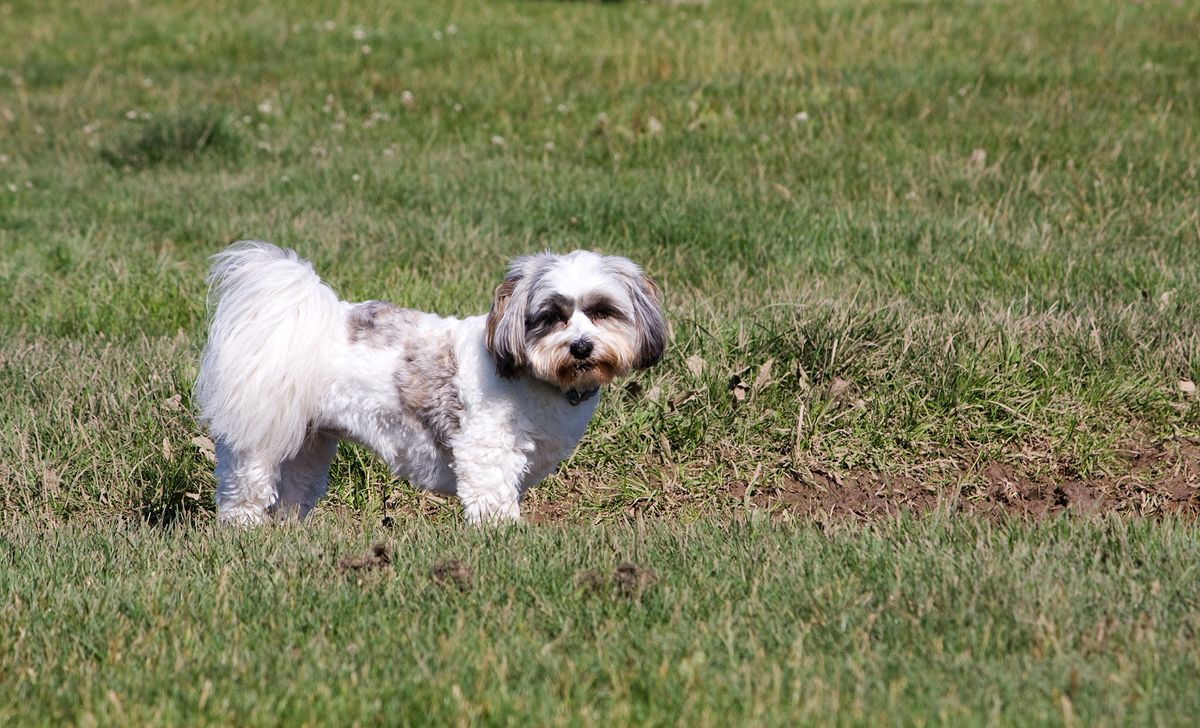ShihTzus, with their adorable faces and flowing coats, are beloved companions around the world. However, like many breeds, they can suffer from allergies that affect their quality of life. Understanding the causes, symptoms, and management of ShihTzu allergies is crucial for pet owners who want to ensure their furry friends are healthy and happy. This article delves into the world of ShihTzu allergies, providing insights into diagnosis, treatment, and preventive strategies, as well as exploring the broader context of hypoallergenic dog breeds.
Key Takeaways
- Identifying common allergens in Shih Tzus is the first step towards managing their allergic reactions and improving their well-being.
- Veterinary allergy testing is essential for an accurate diagnosis, followed by a combination of medications, therapies, and possibly natural remedies.
- Preventive measures such as regular grooming, a suitable diet, and an allergen-free home environment can significantly reduce allergy risks.
- Lifestyle adjustments, including mindful exercise and stress management, play a pivotal role in maintaining the health of allergy-prone Shih Tzus.
- Understanding hypoallergenic dog breeds, including the Shih Tzu’s suitability for allergy sufferers, is beneficial for prospective pet owners with allergies.
Understanding Shih Tzu Allergies: Causes and Symptoms

Common Allergens Affecting Shih Tzus
Shih Tzus, like many other breeds, can suffer from a range of allergies. Environmental allergens such as pollen, dust, and mold are common triggers, especially since pet hair can act as a carrier for these irritants. During spring and autumn, airborne allergens are particularly prevalent, affecting Shih Tzus with symptoms like runny eyes and nasal discharge.
In addition to environmental factors, food allergies can also pose a problem. Certain ingredients in a dog’s diet may lead to allergic reactions, causing discomfort and itchiness. It’s crucial to identify these allergens to ensure your Shih Tzu’s well-being.
Allergies in Shih Tzus are often a result of an overactive immune system, which reacts to harmless substances as if they were threats. This overreaction can manifest in various ways, from skin irritation to gastrointestinal issues.
Understanding the specific allergens that affect your Shih Tzu is the first step towards managing their allergies effectively. Here’s a list of common allergens to be aware of:
- Pollen
- Dust
- Mold
- Certain food ingredients
- Pet dander
Recognizing Allergic Reactions in Your Pet
Identifying when your Shih Tzu is experiencing an allergic reaction is crucial for their well-being. Allergic reactions manifest in various ways, and being aware of the symptoms can help you seek timely intervention. Here are some common signs to watch for:
- Runny eyes
- Nasal discharge
- Irritated ears
- Excessive paw licking
- Persistent itchiness
These symptoms suggest that your pet’s immune system is overreacting to certain substances, which could be ingested, inhaled, or come into contact with their skin. It’s important to note that while some reactions are immediate, others may develop over time, making vigilance essential.
Early recognition and prompt action can make a significant difference in managing your Shih Tzu’s allergies. Addressing symptoms before they escalate can prevent discomfort and more serious health issues.
The Role of Genetics in Shih Tzu Allergies
The genetic makeup of Shih Tzus can predispose them to certain types of allergies, much like in humans. Genetic factors play a significant role in determining whether a Shih Tzu will suffer from allergies during its lifetime. Breeds like the Shih Tzu are often more susceptible to allergies due to their selective breeding history, which can concentrate certain genetic traits, including those related to immune system responses.
While not all allergies can be predicted or prevented, understanding the genetic predisposition of your Shih Tzu can help in managing their health more effectively.
It’s important for owners to be aware of the hereditary nature of these conditions and to establish a routine for veterinary care that includes regular check-ups. This proactive approach can help in early detection and management of potential allergic reactions. Additionally, being prepared for emergencies and training your Shih Tzu with basic commands can contribute to their overall well-being and safety.
Diagnosis and Treatment: Navigating Allergy Care for Your Shih Tzu

Veterinary Allergy Testing: The First Step to Relief
Identifying the specific allergens that trigger reactions in your Shih Tzu is crucial for effective management. Veterinary allergy testing is an essential tool in pinpointing the exact causes of your pet’s discomfort. These tests can range from blood tests to intradermal skin testing, each with its own merits.
Veterinary allergy testing typically involves the following steps:
- Initial consultation and examination to assess symptoms and history.
- Selection of appropriate tests based on the preliminary evaluation.
- Administration of tests to identify reactions to various allergens.
- Analysis of test results and formulation of a treatment plan.
It’s important to remember that allergy testing is just the beginning. A comprehensive approach to allergy management will likely include lifestyle changes and ongoing treatments to ensure your Shih Tzu’s well-being.
Medications and Therapies for Allergy Management
When managing allergies in Shih Tzus, a combination of medications and therapies can be highly effective. Veterinarians may prescribe antihistamines or corticosteroids to reduce inflammation and alleviate symptoms. Additionally, immunotherapy, which involves gradually introducing small amounts of allergens to build up tolerance, can be a long-term solution.
For topical relief, products like Target Spray for Dogs can soothe irritated skin. It’s also important to consider supplements that support skin health, such as Turmeric for Dogs or Yucca for Dogs. These natural remedies can complement traditional treatments and offer additional benefits.
Remember, each Shih Tzu is unique, and what works for one may not work for another. It’s crucial to work closely with your vet to tailor a treatment plan that suits your pet’s specific needs.
Natural Remedies and Supplements
In the quest for a sniffle-free life for your Shih Tzu, natural remedies and supplements can play a supportive role alongside traditional treatments. Natural supplements are derived from plants, herbs, and other natural sources, and can be tailored to address specific health concerns such as joint health or allergies.
When considering supplements, it’s important to consult with your veterinarian to ensure they are appropriate for your pet’s unique needs. Here’s a list of some popular natural supplements that may benefit Shih Tzus with allergies:
- Omega-3 Fatty Acids: To support skin health and reduce inflammation.
- Probiotics: To aid in maintaining a healthy gut flora.
- Quercetin: A natural antihistamine that may help control allergy symptoms.
- Bromelain: An enzyme that can enhance the effects of quercetin.
While these supplements can offer benefits, they should never replace the advice or treatment plan from a professional vet. Always discuss any new supplements with your vet, especially for senior dogs, to ensure they complement your pet’s diet and health regimen.
Remember, the goal is to enhance your Shih Tzu’s quality of life. Adjusting their diet, creating a senior-friendly environment, and incorporating the right supplements are all essential tips for achieving this.
Preventive Strategies: Minimizing Allergy Risks for Shih Tzus

The Importance of Regular Grooming
Regular grooming is not just about keeping your Shih Tzu looking good; it’s a fundamental aspect of their health and well-being. Regular grooming helps remove dirt, dander, and dead hair, reducing the risk of skin infections and ensuring your furry friend is always looking and feeling their best.
Grooming sessions are also a perfect opportunity to bond with your pet and check for any signs of health issues. It’s essential to have the right tools for the job, such as brushes and combs that are suitable for a Shih Tzu’s coat. Here’s a quick guide to the grooming tools you might need:
- Slicker brushes: Ideal for removing tangles and mats
- Bristle brushes: Best for finishing and shining the coat
- Combs: Useful for fine-tuning and detail work
Grooming is not just a beauty routine; it’s a health check in disguise. By maintaining a regular grooming schedule, you can catch potential health problems early on.
Remember, grooming is a continuous process that contributes to your pet’s overall health. It’s not only about a clean appearance but also about their total well-being. Make grooming a regular part of your Shih Tzu’s routine for a happy and healthy life together.
Choosing the Right Diet for Allergy-Prone Dogs
For Shih Tzus with allergies, selecting an appropriate diet is crucial. A limited-ingredient diet is often recommended to reduce the risk of allergic reactions. This approach simplifies the process of identifying potential allergens and can provide relief for dogs with food sensitivities.
When choosing food for your allergy-prone Shih Tzu, it’s essential to scrutinize the ingredients list. Avoiding common allergens like wheat or dairy, and opting for alternatives such as chickpea flour or oat milk, can make a significant difference. Here’s a list of considerations when selecting a diet:
- Look for foods with a short ingredients list.
- Choose novel proteins your dog has not been exposed to.
- Consider foods with natural ingredients and no artificial additives.
- Consult with your veterinarian for personalized recommendations.
Remember, every dog is unique, and what works for one may not work for another. Patience and careful observation are key in finding the diet that best suits your Shih Tzu’s needs.
It’s also helpful to be aware of resources like the ‘10 Best Dog Foods for Shih Tzu With Allergies‘ by Hepper, which can provide a starting point for your search. Always consult with your vet before making any significant changes to your pet’s diet.
Creating an Allergen-Free Environment at Home
Creating an allergen-free environment at home is essential for managing your Shih Tzu’s allergies. Regular cleaning is key, including vacuuming and dusting to remove pet dander and other allergens. Use hypoallergenic cleaning products to avoid introducing new irritants.
- Keep your home well-ventilated to reduce indoor allergens.
- Wash your pet’s bedding and toys frequently in hot water.
- Consider using air purifiers with HEPA filters to capture airborne allergens.
- Limit the use of carpets and upholstered furniture where allergens can accumulate.
An allergen-free home not only benefits your Shih Tzu but also helps in reducing allergy symptoms for humans in the household. By taking proactive steps, you can create a safe and comfortable space for everyone.
Living with Allergies: Lifestyle Adjustments for Affected Shih Tzus

Exercise and Outdoor Activities for Sensitive Dogs
For Shih Tzus with allergies, outdoor activities must be carefully planned to avoid exposure to allergens that can trigger reactions. Regular exercise is crucial for their physical and mental health, but it’s important to choose the right type of activity and environment. Here are some tips for safe and enjoyable outdoor time with your sensitive Shih Tzu:
- Monitor the weather: Avoid days with high pollen counts or extreme temperatures that can exacerbate allergies.
- Choose the right terrain: Opt for clean, paved paths or well-maintained grassy areas to minimize contact with allergens.
- Keep outings short: Shorter, more frequent outings can help prevent overexertion and reduce allergen exposure.
When planning outdoor activities, always prioritize your Shih Tzu’s comfort and safety. Adjust the intensity and duration of exercise according to their health and allergy status.
Remember that indoor activities can also provide valuable exercise during bad weather or high allergen seasons. Engage your Shih Tzu in interactive play or use indoor exercise equipment designed for dogs to keep them active and entertained.
Stress Management and Its Impact on Allergies
Managing stress is crucial for Shih Tzus with allergies. Stress can exacerbate allergic reactions, leading to more frequent or severe symptoms. By reducing stress in your pet’s environment, you can help minimize the impact of allergies.
- Identify stress triggers: Understand what causes stress for your Shih Tzu and work to eliminate or reduce these factors.
- Create a routine: Consistent daily schedules can provide stability and reduce anxiety.
- Provide a safe space: Ensure your Shih Tzu has a comfortable area where they can retreat and feel secure.
While it may be impossible to eliminate all stressors, implementing strategies to manage stress can significantly improve your Shih Tzu’s quality of life and potentially reduce the frequency of allergic reactions.
Socialization and Behavioral Considerations
For Shih Tzus with allergies, socialization and behavior training can be particularly challenging. Allergies can affect a dog’s temperament, making them more irritable or aggressive toward new situations. It’s crucial to invest time in training and socializing these sensitive pups to prevent behavior problems and enhance their overall quality of life.
Allergy management goes beyond physical health; it also encompasses behavioral health, which is essential for a well-adjusted pet.
Understanding canine psychology is key to effective training. Scientific research into dog behavior helps us comprehend the factors that influence temperament and personality. For Shih Tzus, this means tailoring socialization efforts to their unique needs, ensuring they’re comfortable and stress-free during interactions.
Here are some steps to consider for socializing an allergy-prone Shih Tzu:
- Begin socialization early, in controlled environments.
- Gradually introduce new people, pets, and situations.
- Use positive reinforcement techniques to build confidence.
- Consult with a veterinary behaviorist for personalized advice.
Beyond Shih Tzus: Understanding Hypoallergenic Dog Breeds

Characteristics of Hypoallergenic Dogs
Hypoallergenic dogs are a breath of fresh air for allergy sufferers who long for canine companionship. These breeds typically shed less, producing fewer allergens that can trigger symptoms in sensitive individuals. Their unique coat characteristics play a pivotal role in this aspect.
- Curly coats: These trap hair and dander, reducing the amount released into the environment.
- Single-layer coats: Lacking an undercoat, these breeds shed less overall.
- Regular grooming needs: Frequent baths and haircuts help to minimize dander and loose hair.
While no dog breed is completely allergen-free, hypoallergenic breeds offer a significant reduction in the potential for allergic reactions.
It’s important to note that hypoallergenic qualities can vary even within these breeds. Regular maintenance, including grooming and cleaning, remains essential for minimizing allergy risks.
Popular Hypoallergenic Breeds and Their Care
For those who adore dogs but struggle with allergies, certain hypoallergenic breeds can be a game-changer. These breeds are known for their minimal shedding and often have curly coats that help contain hair and dander. Here’s a list of some of the best hypoallergenic dog breeds:
- Bichon Frise
- Schnauzer
- Yorkshire Terrier
- Portuguese Water Dog
- Poodle
- Maltese
- Shih Tzu
- West Highland Terrier
- Irish Water Spaniel
- Lhasa Apso
Regular grooming, including baths and haircuts, is essential for maintaining the hypoallergenic qualities of these breeds. It helps to minimize shedding and keeps dander levels low, which is crucial for allergy sufferers.
While no dog is 100% hypoallergenic, these breeds are the closest you can get to a sniffle-free companionship. Remember, consistent care is key to managing allergens effectively.
It’s important to note that even within these breeds, individual dogs may vary in their allergen levels. Therefore, spending time with a dog before bringing it home can help ensure compatibility with your allergy needs.
Is a Shih Tzu the Right Choice for Allergy Sufferers?
When considering a Shih Tzu for a household with allergy sufferers, it’s essential to weigh the breed’s characteristics against individual sensitivities. Shih Tzus are often celebrated for their affectionate nature and suitability for various lifestyles, including those of allergy sufferers. However, while they are a popular choice, they are not considered a true hypoallergenic breed.
Shih Tzus have a double coat that, despite being less prone to shedding, still produces dander, a common allergen. Regular grooming and maintenance can help minimize the presence of allergens.
For those with mild allergies, Shih Tzus might be a manageable option, especially with consistent grooming and care. Here’s a quick comparison of Shih Tzus with other breeds often recommended for allergy sufferers:
- Bichon Frise
- Schnauzer
- Yorkshire Terrier
- Portuguese Water Dog
- Poodle
- Maltese
Each of these breeds has unique qualities that may make them more suitable for allergy-prone individuals. It’s crucial to consult with an allergist and spend time with the breed before making a decision. Ultimately, the right choice will depend on the severity of the allergies and the commitment to managing pet-related allergens in the home.
Conclusion
In conclusion, managing allergies in Shih Tzus is crucial for their well-being and can significantly improve their quality of life. By identifying the signs of allergies early, seeking appropriate treatment, and taking preventative measures, you can ensure your Shih Tzu lives a happy, sniffle-free life. Remember, regular grooming, choosing the right diet, and creating an allergen-free environment are key steps in keeping your furry friend comfortable. With the right care and attention, your Shih Tzu can thrive despite their allergies, allowing you both to enjoy many joyful years together.
Frequently Asked Questions
What are the common allergens that affect Shih Tzus?
Common allergens affecting Shih Tzus include pollen, dust mites, mold, certain foods, flea saliva, and various environmental factors. Regular grooming and maintaining a clean environment can help minimize exposure.
How can I recognize if my Shih Tzu is having an allergic reaction?
Symptoms of an allergic reaction in Shih Tzus may include itching, red or inflamed skin, sneezing, runny eyes, ear infections, vomiting, or diarrhea. If you notice these signs, consult your veterinarian for proper diagnosis and treatment.
Are Shih Tzus genetically predisposed to allergies?
Yes, genetics can play a role in Shih Tzu allergies. If a Shih Tzu’s parents have allergies, the likelihood of the offspring having allergies increases.
What are the best hypoallergenic dog breeds for people with allergies?
Hypoallergenic dog breeds that are generally better for people with allergies include the Bichon Frise, Schnauzer, Yorkshire Terrier, Portuguese Water Dog, Poodle, Maltese, and Shih Tzu due to their low shedding and dander production.
Can omega-3 supplements help with my Shih Tzu’s allergies?
Omega-3 fatty acids have anti-inflammatory properties that can help relieve itchy skin and improve coat health. Consult your vet to see if omega-3 supplements are suitable for your Shih Tzu’s allergy management.
How can I create an allergen-free environment for my Shih Tzu at home?
To create an allergen-free environment, regularly clean your home, use air purifiers, wash your dog’s bedding often, and avoid using scented candles or sprays that could trigger allergies. Also, consider hypoallergenic shampoos and grooming products.




